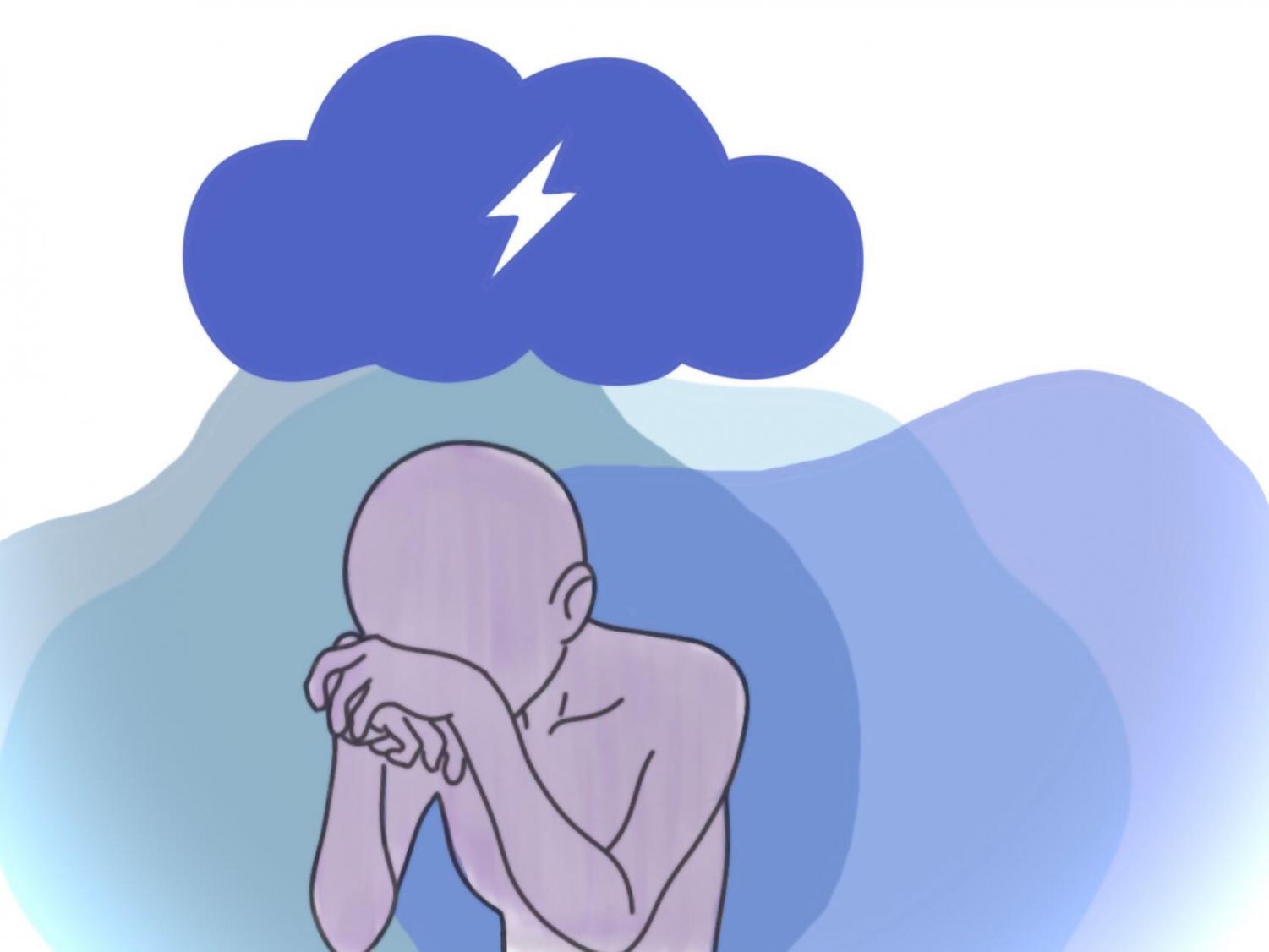Opinion | Battling seasonal depression


I never liked the cold. But as physically unpleasant as the winter feels for me, I didn’t realize how badly I tolerated it until I experienced the season in Pittsburgh. The combination of blistering winds, freezing temperatures and gray skies puts me in a perpetually down mood — and I know I’m not the only one who feels this way.
While the temperatures may feel similar to the weather in my home state of New Jersey, the cold winter and the lack of sunlight in Pittsburgh makes the winter months much harsher. Because the City is the cloudiest in the United States, these few months can not only feel physically painful, but also mentally challenging to get through.
These mood changes are not only common, but scientific as well. Sunlight triggers the brain to release the hormone serotonin, which is directly related to feelings of happiness and calmness. On the other hand, darkness triggers the brain to release melatonin, the hormone that causes sleepiness.
This may explain why schools in these cloudy regions, like Carnegie Mellon or Cornell, have such high rates of student depression. Seasonal Affective Disorder affects about 10 million Americans and is a mild form of depression that usually comes on in the winter months. For those already suffering from depression, it can elevate symptoms. However, many people who don’t necessarily have depression year round still struggle with SAD.
As painful as the winter season may feel, there are various strategies that students can employ and a number of resources that Pitt offers to help students avoid feeling helpless during these months. Instead of succumbing to misery for the whole season, students should try out different methods of battling Seasonal Affective Disorder and see what works for them.
When temperatures hit freezing, warmth takes precedence over style — but there’s no reason why the two can’t go hand in hand. Students should invest in a warm and durable parka — a worthwhile investment for every student, even those on a budget.
By keeping warm, students will feel more inclined to actually go outside, which is a crucial task for those who feel slowed down by the weather. Research shows that physical activity is a vital part of fighting depression. Yet a recent study at the Department of Kinesiology at UConn concludes that students don’t necessarily need to attend the gym to get in their daily movement. In fact, light-intensified activity had the most direct effect on positive well-being.
Luckily, Pittsburgh’s parks are ranked as some of the best City parks in the country and Schenley Park is just a few minutes off campus. For students interested in a more structured walk, Pitt has a Panther walking path that contains 10 points on campus with signs that have QR codes so students can stop and learn a little more about the history of the location in front of them. If students want to workout indoors, there are various recreational centers around campus for students to use, and their spread-out locations make it easy to find one close to class or on-campus living.
Students should also try to soak up as many rays of sunshine as possible — but the hard truth remains that there just aren’t that many in Pittsburgh. Aside from a decrease in serotonin, lack of sunlight can also lead to vitamin D deficiencies, which can result in fatigue and depression among other health issues. This can usually be resolved with vitamin supplements, but if students feel like this might be an issue, they can always go to the wellness center to get a diagnosis for vitamin D deficiency or more information about vitamin D intake. Additionally, if students feel like they need emotional support, they should visit Pitt’s Counseling Center, where group and individual therapy sessions are available for students.
Students can also get more sunlight by visiting the law or medical libraries. Both of these libraries have SAD lights available for students to use. SAD lights work as a form of light therapy for people with Seasonal Affective Disorder. When the lights hit the back of the retina, it sends signals to the brain which can improve mood and depressive symptoms.
Rather than admit defeat when the winter months come, students should do their best to remain resilient and stay busy. Students should attend events, stay social and continue partaking in activities that make them happy.
While the winter may feel long, it doesn’t last forever. These months may not feel pleasant, but they don’t necessarily have to be miserable. Students should battle the winter season knowing that they’re not alone and that there are plenty of people and ample amounts of resources available to help during this tough time.
Recent Posts
Porch roof collapse injures dozens during party on Semple Street
The roof of a porch on Semple Street collapsed during a St. Patrick’s Day celebration…
A Good Hill to Die On // Break It Down
In this release of “A Good Hill to Die On,” I dive deep into the…
Who Asked? // Does growth only “count” if it’s quantifiable?
This installment of Who Asked? by staff writer Brynn Murawski wonders why it feels like…
“They’re throwing trans people under the bus”: Counseling center faces backlash after event name change
On Feb. 24, Pitt’s Counseling Center faced backlash after briefly renaming an event from "LGBT…
Q&A: Meet the 2024-2025 SGB president and vice president
SGB announced the 2024-2025 election results at their meeting on Tuesday. The Pitt News spoke…
Editorial | Pitt Administration must listen to its students’ electoral demands
The passing of these referendums does not guarantee a future Pitt with these policies. Merely,…

